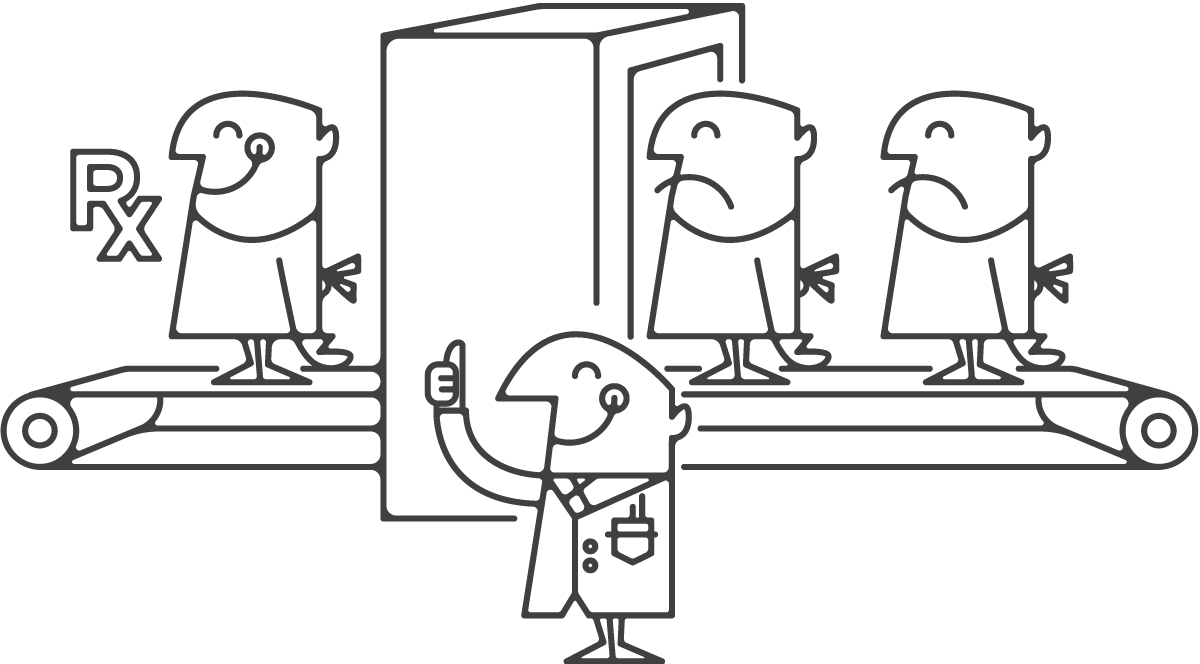Thanks to advancements in technology and product development, businesses have been tricked into thinking that scaling is the only answer to true growth. This may be true for products and manufacturing, but it is counterintuitive for services and experiences. Just as the efficiency of product development can benefit from logistical advancements, technology, more users, and more effective processes, professional services and experiences don’t play by the same rules.
This becomes abundantly clear when you think of the current state of the medical practice industry. As doctors rush their patients in and out as fast as possible, the true value of the service rendered becomes less and less. This efficiency may not devalue the effectiveness of the solution provided by the medical professional — their prescription will still get the job done. However, part of the services rendered is bedside manner and personal care. Sure, it may be healthcare, but the health of humans still needs social care that is warm and personal. In this example, the patient (customer) is the victim of bad service.

Unfortunately, this also hurts the reputation and perception of the medical practice, even if the doctor is a top-shelf provider. It simultaneously cannibalizes the industry because the lack of care makes telehealth, urgent care, and even ChatGPT viable solutions because they can diagnose and prescribe just as efficiently (if not more so) — this leaves human care and bedside manner being the most valuable aspect of a doctor’s office because receiving the prescription a given.
This example of scaling in the service context obviously has faults. The fallacy of scaling leads to more potential revenue but ultimately harms the experience and perception of the brand. Thanks to apps on the internet, scaling has only been viewed as appealing because the profitability for these types of businesses increases with the cost per user being driven down by the economies of scale. This is simply due to the fact that it doesn’t cost these companies all that much more to add another user account. Similarly, it doesn’t cost an automotive brand all that much to add another car to the assembly line because the machinery and facility are already in place.
These types of spectacular efficiencies are derived from smart processes and a very large customer base (scale). However, this type of thinking simply does not resonate with service-based businesses that wish to create value and experiences for their customers. These businesses benefit from the polar-opposite thinking: to do that which does not scale.
These businesses benefit exponentially by subtracting and focusing. By descaling service and experience, businesses benefit by increasing the true value of their offering. Since they will serve fewer clients and not a spectrum of thousands of users, they have the benefit of focusing on each individual and providing a more valuable experience through and through. This ultimately leads to happier clients, better results, and increased perceived value on behalf of the client.
These clients may pay more for the service, but are happy to do so because of this perceived value. This model naturally leads a business to focus on effectiveness, and not efficiencies. Yes, there are still processes and methodologies to accomplish things effectively. However, not in an effort to be more efficient, but to be more effective in achieving better results. This by definition includes having “free time” to research and for recreation to better serve clients.
For service businesses, scaling is the wrong playbook. Scaling is for McDonald’s, not The French Laundry. Scaling is for Teladoc, not doctors’ offices. Scaling is for Uber, not a chauffeur. In my mind, scaling benefits through addition because this divides operational cost. On the other hand, descaling benefits through subtraction because it multiplies value.
In one scenario, you increase value by decreasing the cost through mass (just as we have seen Amazon, Netflix, and Uber do throughout the years). And in the other scenario, you increase value by decreasing mass through price (high-end brands, auctions, concert tickets). The former is unlimited in supply, while the latter is scarce. However, in both scenarios, the demand and — more importantly — the desire are subject to the perceived value in the context of the offering, the need, the price, and the brand.
As everything seems to become a commodity nowadays, it seems prudent for service and experience businesses to focus on perceived value through descaling. By descaling their businesses, they benefit their clientele, profitability, and success. Ultimately, these brands that descale can survive and thrive as technology pushes onward to drive efficiencies in all areas of life.

